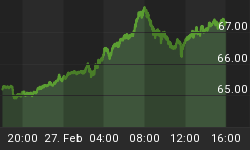A new poll shows nearly 19% of Americans have been laid off from their jobs or have experienced a reduction in their work hours as a result of measures to contain the coronavirus outbreak.
The survey, conducted by The Marist Poll, found that the proportion affected grew for lower-income households, with 25% of those making less than $50,000 a year reporting that they had been let go or had been scheduled for reduced hours. The same poll found that about 56% of Americans still consider the coronavirus outbreak a “real threat”, while 38% said it was “blown out of proportion”.
Travel and hospitality industries have been hit the most.
Severe drops in demand, quarantine measures and various other travel restrictions are expected to spread across virtually the entire economy. So far, though, restaurants, bars, hotels and airlines are among the hardest-hit sectors.
In the travel industry alone, a report by the U.S. Travel Association is projecting 4.6 million jobs lost this year.
“A decline of 31% for the entire year is expected. This includes a 75% drop in revenue over the next two months and continued losses over the rest of the year reaching $355 billion,” the report said.
The only hope for many is to latch onto jobs that are actually soaring, such as online shopping and delivery.
Amazon says it will hire 100,000 workers to assist with online deliveries in the U.S. and raise their minimum pay to at least $17 an hour through April.
The company invited people who have been laid off, including those in the restaurant and travel industries, to apply. "We want those people to know we welcome them on our teams until things return to normal and their past employer is able to bring them back," the company’s statement said.
Meanwhile, Kroger, the supermarket chain, also has "immediate positions available ... across our retail stores, manufacturing plants and distribution centers.'
As for the government, it is considering sending most American adults a check for $1,000-or more as part of efforts to stimulate the economy and help workers whose jobs have been disrupted. That would cost $250 billion, according to some estimates.
In 2008, just before the financial crisis in 2008, the George W. Bush administration passed a $168 billion stimulus plan and checks were sent to taxpayers.
The Bush administration sent $600 checks to individuals, $1,200 to married couples and an additional $300 per child. However, the stimulus failed to produce the expected long-term results since only 20% of the money sent was spent.
Related: Is It Time To Buy The Blood On The Streets?
The Trump administration aims to deploy nearly $1 trillion in aid in the coming weeks to prop up the U.S. economy. The package, currently under the negotiation, would provide $50 billion for the hard-hit airline industry and $250 billion for small business support.
Treasury Secretary Steven Mnuchin warned that without action the coronavirus pandemic could drive up U.S. unemployment to 20%. This unemployment rate would leave more than 32 million Americans out of a job.
The stock market, economy and employment affected by Coronavirus could be a big blow for Trump’s re-election bid. He has made the growing economy, record stock market numbers and low unemployment the focal points of his re-election bid.
A Gallup poll from early February showed that Trump's approval on the economy is 63%, the highest approval rating for any president in the last two decades.
A historically low unemployment rate and stock-market record highs have together been a particular boost for Trump and his 2020 election campaign.
His overall job approval rating in those same polls has been just 44%, down from the 49% he earned as the Senate prepared to acquit him in his impeachment trial.
A recent ABC News poll found that 54% of Americans disapprove of the way the president is handling the response to the coronavirus crisis. The poll’s results come after the White House spent weeks downplaying the coronavirus threat to the country.
By Josh Owens for Safehaven.com
More Top Reads From Safehaven.com:
















